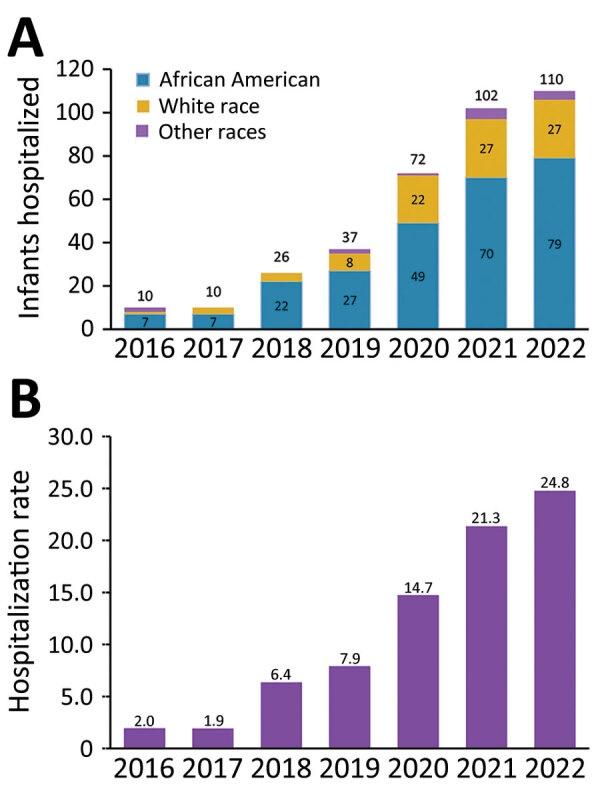Syphilis rate in Mississippi newborns surges 1,000% since 2016


The national rate of babies and infants contracting syphilis has risen sharply in recent years, including in Mississippi, where a 1,000% rise between 2016 and 2022 has some public health experts concerned.
According to a joint study conducted by the Mississippi Department of Health and University of Mississippi Medical Center, 40% of babies who contract congenital syphilis in the womb and go untreated will die before they're born.
Congenital syphilis is one of many factors contributing to the state's ranking as the deadliest for newborn babies in the country.
Dr. Thomas Dobbs, a co-author of the report and dean of the school of population health at UMMC, says insufficient public health funding may be partly to blame for rising syphilis numbers. Dobbs says those resource gaps are often reflected in a lack of preventative measures, such as education and access.
“Clearly one of the biggest factors is that we have seen a decline in public health resources in people who are out there tracking down infectious disease cases like syphilis, making sure that people and their partners are treated. And without having that resource, we are allowing syphilis to really explode in the population,” Dobbs said.
Also, more women than in the past are getting exposed to syphilis, according to Dobbs. Because syphilis symptoms can go unnoticed in some people, many don’t seek prompt treatment.
“And so most people who are walking around with syphilis don't know they have it. Syphilis is something you have to treat to get rid of. … All you have to do is get a single shot of penicillin, of a certain form of penicillin, and it's curative,” Dobbs explained.
For people of reproductive age who are or may become pregnant, syphilis can cause a host of problems, including miscarriages and stillbirths.
“Neurologic changes, brain damage, bone abnormalities, vision loss, deafness, these are all things that can happen if we do not treat babies with syphilis if they're born with it,” Dobbs said.
Nationally, two of the main indicators of STI transmission are poverty and race. In Dobbs’ study, 70% of all children hospitalized with congenital syphilis in Mississippi were Black.

Earlier this year, the state mandated that doctors test all pregnant Mississippians for syphilis both in the first trimester and at the time of delivery.
However, barriers to prenatal care can cause a delay in testing pregnant women for syphilis and increase the risk that the fetus will contract it. Mississippians who live in rural health care ‘deserts’ are most likely to lack access to adequate reproductive and prenatal health care.
“The situation that we have with not having doctors in the community, having hospitals … pulling back on services, and then people not having the resources to drive long distances just for a prenatal care checkup. Those are major factors in putting our babies at risk,” Dobbs said.
Increasing access to reproductive health care for women and emphasizing syphilis testing and treatment earlier, rather than later on, during pregnancy, is the best route for reducing congenital syphilis rates in the state.
“The key is to find the women, make sure that women are identified early so that we can get them in treatment,” Dobbs said. “And then connect them with treatment so that they can be cured.”